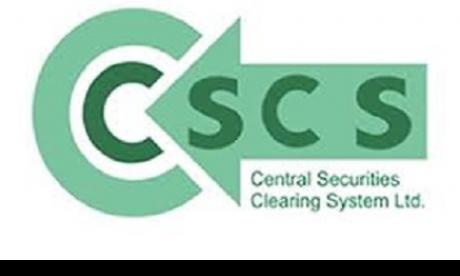The Nigerian capital market is poised for a significant upgrade with the impending transition to a T+2 settlement cycle, a move that promises to enhance market efficiency, align the country with global standards, and bolster investor confidence. Central Securities Clearing System Plc (CSCS), a critical player in the Nigerian capital market, is spearheading this transition by hosting a webinar themed “Advancing Market Efficiency through T+2 Settlement.” This webinar serves as a crucial platform for industry-wide engagement and dissemination of vital information regarding the transition process.
The shift to a T+2 settlement cycle, slated for November 28, 2025, signifies a reduction in the time it takes for securities transactions to settle. Currently operating on a T+3 cycle, where “T” represents the trade date and the number following indicates the number of business days until settlement, the move to T+2 compresses the settlement period, bringing Nigeria in line with international best practices. This shorter timeframe offers multiple advantages, including improved liquidity, reduced counterparty risk – the risk that one party in a transaction will default before completion – and a reinforced sense of trust among investors.
The webinar, orchestrated by CSCS, will feature key figures from Nigeria’s financial landscape. Among the speakers are Dr. Emomotimi Agama, Director-General of the Securities and Exchange Commission (SEC), the regulatory body overseeing the capital market; Haruna Jalo-Waziri, Managing Director/Chief Executive Officer of CSCS Plc; Jude Chiemeka, CEO of Nigerian Exchange Limited (NGX), the country’s primary stock exchange; Eguarekhide Longe, MD/CEO of NASD Plc, an over-the-counter securities exchange; Akinsola Akeredolu-Ale, MD/CEO of Lagos Commodities and Futures Exchange (LCFE); and Onome Komolafe, Chairman of the Settlement Cycle Review Committee. This assembly of prominent figures highlights the collaborative effort driving this transformative change within the Nigerian capital market.
Haruna Jalo-Waziri, the CEO of CSCS, emphasizes the significance of the transition, describing it as a “significant milestone” and a testament to the cooperative spirit within the Nigerian capital market ecosystem. He underscores the benefits of aligning with global best practices, highlighting the anticipated improvements in efficiency, resilience, and investor trust. CSCS’s proactive role in coordinating this transition, supported by regulators, exchanges, and other market stakeholders, is pivotal in ensuring a smooth and successful implementation.
The groundwork for this transition has been meticulously laid by the Settlement Cycle Review Committee, a body coordinated by CSCS and composed of key industry stakeholders. This committee has undertaken a rigorous multi-phase assessment, culminating in a comprehensive report submitted to the SEC for regulatory review and approval. This structured approach underscores the commitment to a thorough and well-planned transition process, minimizing potential disruptions and maximizing the benefits of the T+2 cycle.
The upcoming webinar serves as a critical communication channel for stakeholders, providing updates, guidance, and clarity on the implementation process. This proactive dissemination of information aims to ensure that all market participants are adequately prepared for the November 28th go-live date. The webinar format allows for interactive engagement, enabling stakeholders to address their queries and gain a deeper understanding of the intricacies of the T+2 settlement cycle and its implications for their operations. This collaborative approach fosters a shared understanding and promotes a smooth transition across the market. The webinar, in essence, is a crucial step in ensuring the successful implementation of the T+2 settlement cycle in Nigeria.
The transition to T+2 signifies more than just a technical adjustment; it represents a significant leap forward for the Nigerian capital market. By aligning with international standards, Nigeria enhances its attractiveness to foreign investors, promotes greater efficiency in trading operations, and strengthens the overall integrity of its financial system. The reduced settlement time minimizes the risk of failed trades and fosters a more dynamic and responsive market. This modernization contributes to a more robust and globally competitive capital market, ultimately benefiting all participants and contributing to the growth and stability of the Nigerian economy.
The concerted effort by CSCS, the SEC, and other market stakeholders underscores the commitment to continuous improvement and modernization within the Nigerian capital market. The transition to T+2 is a testament to this commitment, reflecting a proactive approach to embracing global best practices and fostering a more efficient and investor-friendly environment. This initiative not only enhances the operational efficiency of the market but also reinforces its credibility and attractiveness on the global stage.
The upcoming webinar, therefore, represents a crucial juncture in this transformative journey. It provides a platform for open dialogue, knowledge sharing, and collaborative problem-solving, ensuring that all stakeholders are well-equipped to navigate the transition seamlessly. The success of this transition hinges on the collective efforts and shared understanding of all market participants, and the webinar plays a pivotal role in fostering this collaborative spirit.
The transition to T+2 is a significant step towards strengthening the Nigerian capital market and aligning it with international best practices. This move reflects a broader commitment to enhancing market efficiency, reducing risks, and fostering greater investor confidence. The collaborative approach adopted by CSCS, the SEC, and other stakeholders ensures a smooth and successful transition, paving the way for a more robust and globally competitive capital market in Nigeria. The upcoming webinar serves as a vital platform for disseminating information, addressing concerns, and fostering a shared understanding among all market participants, ultimately contributing to the successful implementation of the T+2 settlement cycle. This move is a testament to the ongoing efforts to modernize and strengthen the Nigerian capital market, positioning it for continued growth and development.














